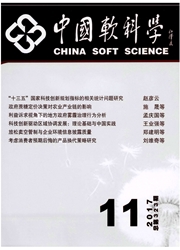

 中文摘要:
中文摘要:
由污染场地引发的一系列社会问题已成为影响我国城市经济社会可持续发展的重要障碍。对污染场地的风险管控应依循公共治理路径,以多元主体共治为治理形式,以透明、法治、参与为基本要素,以实现风险责任的分配正义与城市永续发展为价值旨归。由于受到效益主导型环境治理模式的影响,当前我国政府主导的城市污染场地风险治理机制在实践运行中遭遇了诸多困境,诸如治理主体单极化、风险决策技术理性化、治理结果公平性缺失等。以提升社会风险治理能力为目标,通过构建多元主体合作治理模式、完善相关立法和政策决策机制、建立场地信息公开与公众参与制度、健全监督管理体制、确立场地治理责任制度等方式,可以有效矫治这些问题,推动城市可持续发展。
 英文摘要:
英文摘要:
A series of social problems caused by contaminated sites have made a major obstacle to China 's urban economic and social sustainable development. Public governance is an effective way to resolve the risk of contaminated sites. It requires multi-agent governance,transparency,rule of law and public participation. Its values are to make distributive justice of risk responsibility and sustainable development of cities. Due to negative effect of benefit-oriented governance model,the operation of sites governance has encountered many difficulties in China. It is characterized by single subject,technology rationality dominance and unfair result. It is suggested that the multi-agent governance,legislation supply,decision mechanisms,information disclosure and public participation,management and responsibility system should be improved to solve these problems.
 同期刊论文项目
同期刊论文项目
 同项目期刊论文
同项目期刊论文
 期刊信息
期刊信息
